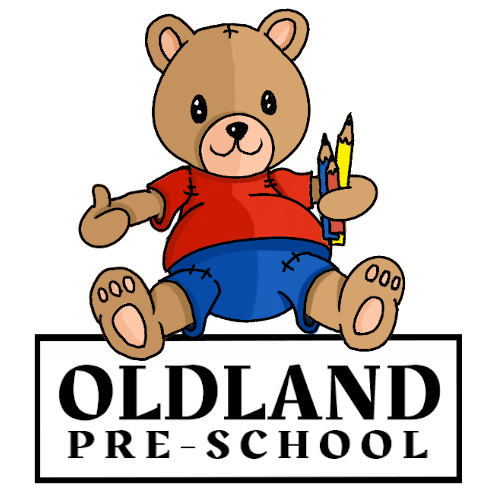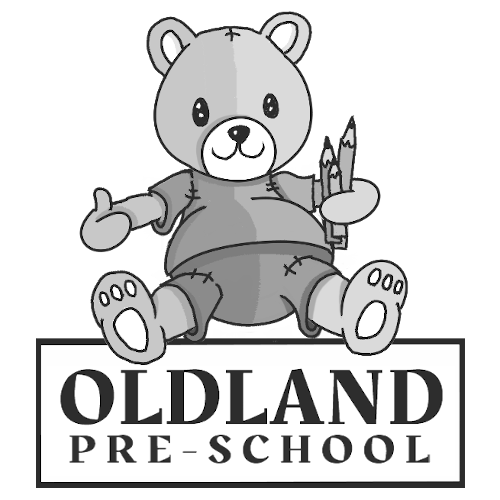
What happens at pre-school?
Activities


Children start to learn about the world from the moment they are born and we believe that children learn most effectively through creative play. We aim to help your child continue to learn by providing them with interesting activities that are suitable for their age and stage of development. For example:
Pre-school routine


We introduce the children to a simple routine, which helps children know what to expect and helps prepare them for school. However, every day at pre-school is different and we allow lots of room for making choices throughout the day. We also go on trips in our local area (with parental permission), which helps us build links with the community.
A typical Pre-school day might be:
| MORNING ROUTINE | |
|---|---|
| 8:00 | Opening of Oldland Pre-School, staff begin setting up for the day, and breakfast club children start to arrive. |
| 8:30-9 | Children are welcomed into the setting and can select various table top activities. |
| 9:05 | Short group time: Children are gathered to welcome each other and talk about the day of the week/date/weather and what will be happening throughout the day. |
| 9:15 | General play: Adult let and child initiated activities using both the indoor and outdoor areas. |
| 10:00 | Snack bar opens: generally a healthy snack of fruit and vegetables with a choice of milk or water. This is also an opportunity for the children to interact socially and practice physical and independent skills. |
| 11:00 | Tidy up time: all children are given jobs to do and are encouraged to help. |
| 11:15 | Circle/small group time, this might include: Singing/music activities Story Phonic and number games Small group discussion including show and tell |
| 11:30 | Playtime outside/Small group activities (Planned specific learning objectives for children). |
| 11:50 | Wash hands ready for lunch. |
| 12:00 | Morning children are collected. |
| LUNCHTIME ROUTINE | |
| 12:00 | Find name card and sit to the table for lunch: children and adults sit together to eat. |
| 12:30 | Quiet reading, followed by book of the week together. |
| AFTERNOON ROUTINE | |
| 12:30 | Afternoon session children arrive. |
| 12:40 | Short group time: afternoon children are welcomed and the children & adults talk about the afternoon's activities. |
| 12:50 | General play: Adult let and child initiated activities using both the indoor and outdoor areas. |
| 1:45 | Tidy up time. All children are given jobs to do and are encouraged to help. |
| 2:00 | Wash hands ready for snack. |
| 2:10 | Snack bar opens: generally a healthy snack of fruit and vegetables with a choice of milk or water. This is also an opportunity for the children to interact socially and practice physical and independent skills. |
| 2:25 | Circle/small group time, this might include: Singing/music activities Story Phonic and number games Small group discussion including show and tell |
| 2:35 | Playtime outside/Small group activities (Planned specific learning objectives for children). |
| 3:00 | Quiet tabletop activities and collect belongings ready for home time. |
| 3:30 | Parents/carers arrive to collect their children. Staff may use this time to discuss your child’s day. |
| 3:30-5 | After pre-school club: children enjoy a small snack and drink and take part in an extra-curricular activity. |
| Go home, relax, sleep well and rest ready for tomorrow, another fun filled day at Oldland Pre-school! |
Food

We ask that children bring a packed lunch to pre-school with them if they are staying over lunchtime. Children and adults sit together to eat. We encourage a healthy lunch box but don’t mind the odd treat.
Children also have a morning and afternoon healthy snack (e.g. fruit). Water bottles are available throughout the day. Children who join us for breakfast and/or after Pre-school club can also have breakfast or a snack for a small fee.
Learning at Pre-school: EYFS
We use the Development Matters document to plan exciting and stimulating activities for your child.
More information can be found at the below sources:
Department for Education website
Foundation Years website
South Gloucestershire Council website

Our Early Years Foundation Stage (EYFS) curriculum is divided into seven areas:
b. Self-confidence and self-awareness
c. Managing feelings and behaviour
b. Health and self-care
b. Understanding
c. Speaking
b. Writing
b. Shape, space and measure
b. The world
c. Technology
b. Being imaginative
